Do you have what you need to make your garden grow?


Garden Center
Store Hours
Mon-Sat:
6:00am - 10:00pm
Sun:
8:00am - 8:00pm
Curbside:
09:00am - 6:00pm
Location
Popular at Your Garden Center
Fall Garden Center Essentials
Popular Garden Center Live Plants
Garden Project Calculators
;Resize=(703,395.44))
Grass Seed Calculator
When you're ready to seed your lawn, our calculator helps you estimate the amount of grass seed you'll need to get the job done.
;Resize=(703,395.44))
Mulch Calculator
Enter your preferred material, the square footage and mulch depth of the coverage space for accurate results.
;Resize=(703,395.44))
Fencing Calculator
We'll calculate the amount of fencing you should purchase based on your property needs.
Shop Outdoor and Garden Brands
Frequently Asked Questions About Gardening
When do I plant my fall vegetables outdoors?
If you're planting seeds for fall gardening, get them in by late summer. Warm climates can plant later in the year than colder northern climates. You may be able to grow cruciferous vegetables and leafy greens throughout the fall and into winter if the weather stays mild. Check your planting zone for information on your growing season and specific plants, then read up on how to plant a fall vegetable garden.
What can I do with the extra wood after tree trimming or tree removal?
Log splitters leave you with more manageable chunks of wood, while wood chippers make small wood chips. After pruning trees and bushes with a gas chainsaw or hedge trimmers, clean up the debris in a wood chipper. If your trees are healthy, the chopped wood and bark chips make fresh mulch that you can spread around your fall flowers and plants. If you got rid of a tree, you can either get an axe or a log splitter to divide the downed tree into smaller pieces. The wood splitter will be faster and a smart investment if you're doing a large amount of tree cleanup, and bigger is better here.
How do I get rid of all the leaves in my yard?
Although it may sometimes feel like a losing battle, you can keep on top of leaf maintenance. For a workout, a quiet cleanup method, and an economical choice, go with a rake, some work gloves, and lawn bags. We've also got leaf blowers if you'd prefer an outdoor power tool instead.
How do I store my garden tools for the season?
Give your garden and yard a final cleanup for the season, then store the tools for the winter. Remove dirt and grime by soaking them in soapy water, then drying the tools thoroughly. Next, soak them in a bleach and water mix for 20 minutes to kill off any fungus or bacteria, and follow with a rinse. Then, scrub away rust specks using a wire brush, oil them with WD-40 or vegetable oil if necessary, and make sure they're dry before hanging them in a shed or garage.
How do I winterize my pool?
Once the heat of summer dissipates, it's time to winterize the pool before the cold really sets in. Clean and vacuum your pool with a special pool vacuum, then drain the water. Use a swimming pool cover to help prevent the pipes or even the pool wall itself from becoming cracked or weakened if water freezes and expands inside. While you're at it, drain and cover outdoor spigots and sprinkler systems, too.
Garden Project Ideas
The Spring Valley Home Depot Garden Center
Fall is a different time for your lawn and garden, so grab your work gloves, pole saws, chainsaws, and pruners. The focus shifts from growing to harvesting, from upkeep to cleanup. We've got tips to help you make the most of your garden and landscaping as the season ends. We'll also help guide you through fall harvest and planting. Depending on your climate, you might be able to garden throughout the cooler months. Read on for more on fall lawn and garden maintenance.
Fertilize or Patch Your Lawn
Patch up bald spots on your lawn by overseeding them. Chillier weather is a great time to fill in brown, dead, or bare places in your yard. However, be mindful of fallen leaves on freshly seeded areas. Fresh grass seed requires air, water, and sun to grow, and leaf litter can block out the air and sunlight it needs to germinate.
If your lawn is in good shape, make sure it stays that way by applying lawn fertilizer if you have cool-season grass. Aerate your lawn before adding fertilizer to get the most value. An edger gives extra polish to the perimeter of your yard. Water your cool-season lawn regularly and tend to any pesky fall weeds that show up. It'll require different upkeep than warm-season grass, which goes dormant as cooler weather arrives. Taper down watering on warm-season lawns.
Fall Planting
Autumn planting is often overlooked, but fall is the perfect time to get extra flowers in your garden. Chrysanthemums, often just called "mums," provide a pretty pop of fall color. Find them in shades of red, pink, yellow, purple, orange, and white. You may also choose some marigolds for red, orange, and yellow blooms that last until the first frost, or possibly even longer if you properly protect them. Remember to explore the wide variety of fall plant and flower options.
Succulents and shrubs also blossom in the fall, especially if they've been established in the ground or kept in flower pots. Succulent planters allow for easier upkeep of sensitive succulents. You can customize the soil in the planters to fit these desert plants, as they need a sandy succulent soil mixture.
For shrubs, care for the ones you've got or plant new ones, weather permitting. Get in new plants now, especially if you're in a warmer climate and have time before the cold and frost set in. If you use retaining wall blocks to accent or surround your garden area, try giving a finished look with rubber mulch. It'll overwinter just fine and look new longer than bark chips or other mulches that fade with weathering.
Cut and Cover Perennials
In climates where you might have a cold snap here and there, but then it'll warm up above freezing again, cover your plants. Protect your garden from frost and freeze damage to extend their season. You can get extra life out of your garden by covering your plants with painting drop cloths, 5-gallon buckets, or even tarps. It'll warm your plants like a blanket or greenhouse, and they'll survive a frost.
This works well when the weather is still transitional, until you're fully into the colder parts of the season. Uncover the plants in the morning when the thermometer goes up again and let them enjoy the fall sunshine. Once the temperatures regularly dip below freezing, it's time to say goodbye to the garden for now.
Put the Garden to Bed
When the sun angle changes and your annuals start looking rougher, it's time to dig up the plants. Northern climates that cool down earlier in the fall might be putting the garden to bed for the season in October or November, while warmer climates might wait until November or December. After your veggie plants have yielded a final harvest, dig them up, then chop and dispose of the detritus, or dead plant debris. You can allow them to return their nutrients to the earth, but there are two exceptions: if your plants had disease or if you had a problem with snails.
If your garden is prone to snails, you'll want to let the old plant matter decay elsewhere. Slugs and snails dine on decaying plants. Moving those plants to another location will help prevent your garden from being overrun by these pests in the spring. Although slugs and snails are often thought of as pests by gardeners, they're still part of the ecosystem, so relocate them elsewhere on your property if possible. As for the exception of your plants struggling with disease or blight, simply pack up those dead plants in the leaf and lawn bag to avoid passing any issues on to next year's crop.
After you've removed the old plants, you have a clean slate. Prep your garden bed for spring by rotating the soil with a shovel or renting a rototiller. You'll want to bring the deeper soil to the surface, send the topsoil lower down, and generally break up the ground. It helps nutrients penetrate and lets the soil rest. It's also a fantastic opportunity to test the soil and see what, if any, soil amendments you need. Different crops and plants use different nutrients. Test your soil to see if it's balanced or if you should add certain nutrients that have been depleted.
Bring Delicate Plants Indoors
Gardeners with potted plants can extend their growing season by bringing the plants indoors to a sunny spot. Indoor gardening allows both outdoor plants to live longer and house plants to bring joy into your home. Just make sure they get enough water now that they won't benefit from rainfall, and rotate them regularly to give all those leaves equal sunlight for photosynthesis. Remember to place decorative dishes beneath them if the pots don't have built-in overflow dishes to catch any extra water.
Warm Up with a Fire Pit
Stretch out your fall evenings with a fire pit, outdoor fireplace, or patio heater to take off the chill. Whether you're looking to heat a small patio, a spacious deck, or a cozy back porch, we've got options. All you have to do is find the one that matches your style.
We've got fire bowls and fire pit tables ready to warm your outdoor space. Check out stylish propane and natural gas fire pits in various shapes. We've also got wood-burning fire pits and the firewood to stoke them. You can even build your own with fire pit kits or make it completely custom and build an in-ground fire pit to your exact specifications with pavers that lead to and surround the pit. Stop by your closest garden center to see what's in stock.
Ease Into Fall
This fall, shore up your lawn and garden for the season with The Home Depot. We have everything you need for leaf cleanup, putting the garden to bed, and restoring nutrients to your soil so it's ready for the upcoming spring season. Shop our selection of fall garden care and outdoor living products online, in your local store, or in our mobile app.
Nearby Stores
Find Another Store
8400 Westheimer Rd
Houston, TX 77063
3.49 mi
Mon-Sat: 6:00am - 10:00pm
Sun: 8:00am - 8:00pm
1100 Lumpkin Rd
Houston, TX 77043
3.87 mi
Mon-Sat: 6:00am - 10:00pm
Sun: 8:00am - 8:00pm
5445 West Loop South
Houston, TX 77081
4.89 mi
Mon-Sat: 6:00am - 10:00pm
Sun: 8:00am - 8:00pm
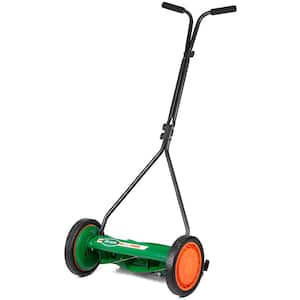
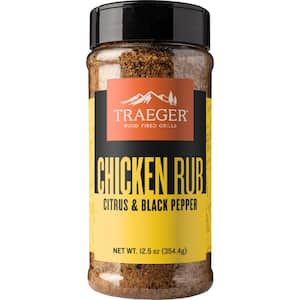
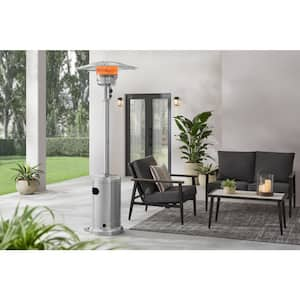
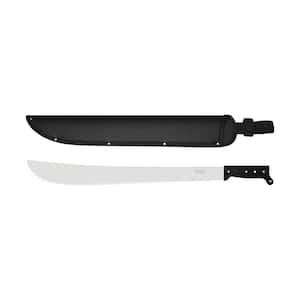
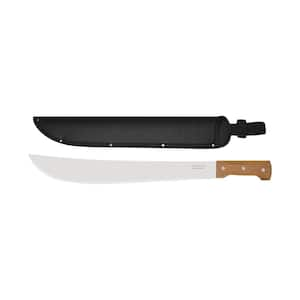
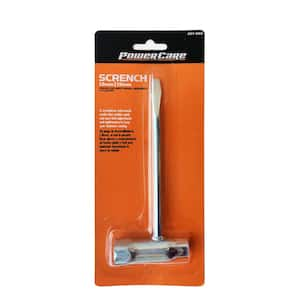
)
/16Halloween_L_Inflatables_Product%20Image%20(square).jpg?im=Resize=(300,300))
;Resize=(300,300))
)
;Resize=(300,300))
/2021_PCK_Projectors_315535010_L_A_05-27-2021_Product%20Image%20(square).jpg?im=Resize=(300,300))
/2019_HALLOWEENHARVEST2019_II_Halloween_308468104_S_B_Social%20media%20(square).jpg?im=Resize=(300,300))
)
)
)
;Resize=(300,300))
/17_514245_S_012_Product%20Image%20(square).jpg?im=Resize=(300,300))
;Resize=(300,300))
;Resize=(300,300))
;Resize=(300,300))
;Resize=(300,300))
)
)
)
)
)
)
;Resize=(300,300))
)
)
)
;Resize=(300,300))
)
.jpeg?im=Crop,rect=(363.69230769230774,1.2307692307692308,958.7692307692308,958.7692307692308);Resize=(300,300))
;Resize=(300,300))
)
)
)
;Resize=(300,300))
;Resize=(300,300))
)
;Resize=(300,300))
)
)
;Resize=(300,300))
)
;Resize=(300,300))
)
;Resize=(300,300))
;Resize=(300,300))
)
)
)
;Resize=(300,300))
;Resize=(300,300))
/Dorado_Tropical_Combo_14in_Product%20Image%20(square).jpg?im=Resize=(300,300))
;Resize=(300,300))
/2023_2_Cactus_Plants_Product%20Image%20(square).jpg?im=Resize=(300,300))












































